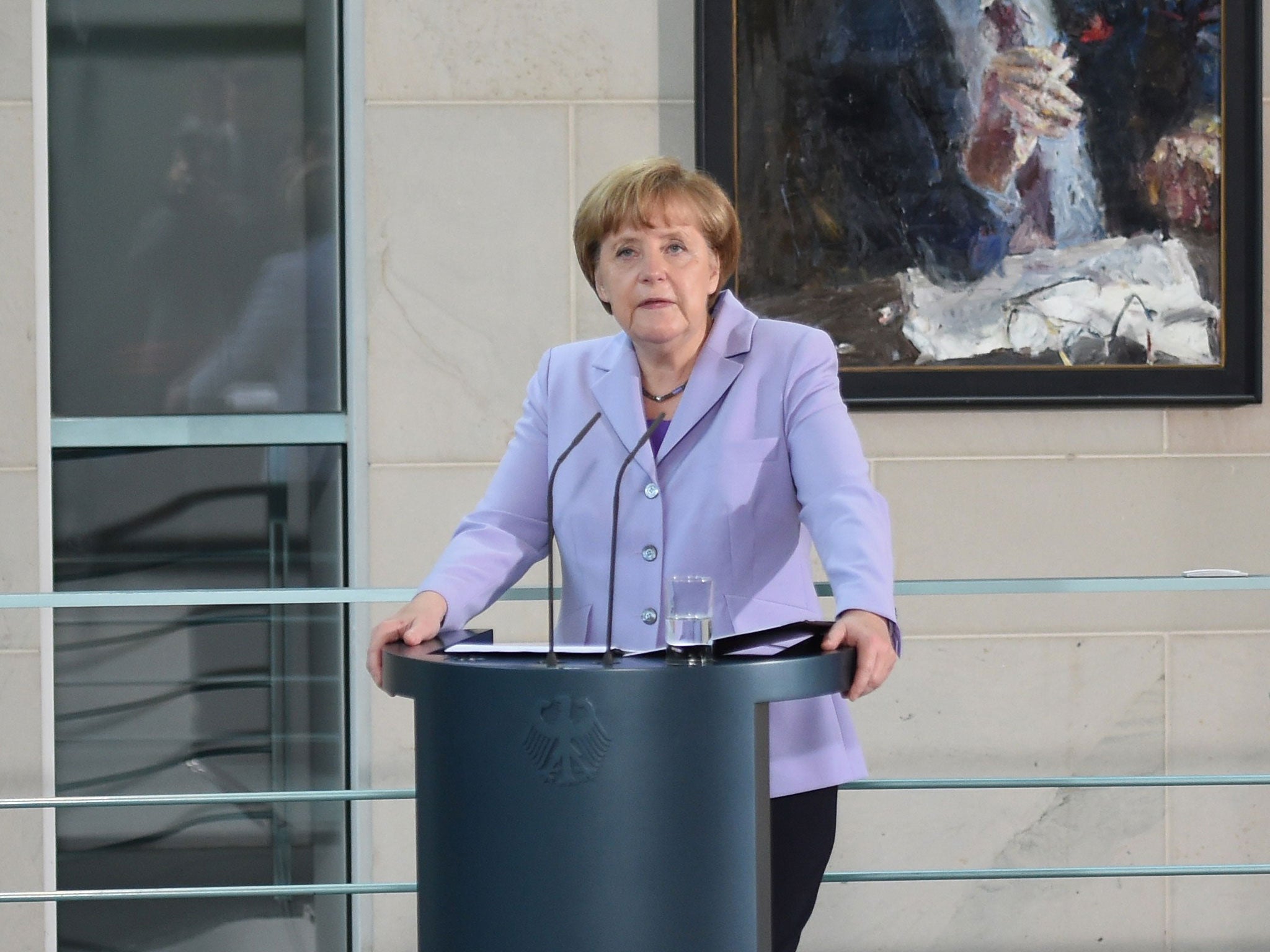Greece debt crisis: Angela Merkel behind bailout but faces tough resistance
France's president François Hollande suggests French solidarity rather than German austerity has saved the day

Your support helps us to tell the story
From reproductive rights to climate change to Big Tech, The Independent is on the ground when the story is developing. Whether it's investigating the financials of Elon Musk's pro-Trump PAC or producing our latest documentary, 'The A Word', which shines a light on the American women fighting for reproductive rights, we know how important it is to parse out the facts from the messaging.
At such a critical moment in US history, we need reporters on the ground. Your donation allows us to keep sending journalists to speak to both sides of the story.
The Independent is trusted by Americans across the entire political spectrum. And unlike many other quality news outlets, we choose not to lock Americans out of our reporting and analysis with paywalls. We believe quality journalism should be available to everyone, paid for by those who can afford it.
Your support makes all the difference.Despite scepticism within her own party, Chancellor Angela Merkel joined other eurozone leaders in giving her wholehearted backing to last-minute breakthrough deal with Greece and declared she supported the outcome with “complete conviction”.
“The advantages outweigh the disadvantages,” said Ms Merkel of the proposed €86bn European Stability Mechanism funded bailout hammered out between eurozone leaders during hours of fraught weekend negotiations in Brussels. “Greece has a chance to return to the path of growth,” she added.
However, in France, President François Hollande suggested French solidarity rather than German austerity had saved the day. “Integrity and solidarity” had prevented Greece from dropping out of the eurozone, he said. “We got the agreement France wanted. Greece can stay in,” he insisted.
German taxpayers are the biggest contributors to eurozone bailout funding. But Ms Merkel said she was convinced that she would gain backing from the German parliament for the deal when it came to a vote on the issue.
But with an estimated 100 MPs in her own Christian Democratic Party opposed to a further Greek bailout, Ms Merkel may have to rely on the support of other parties to win approval for the project.
The German parliament will hold its first vote this Friday on whether to start negotiations on the bailout.
Hans Michelbach, one of Ms Merkel’s renegade conservative MPs, denounced the deal yesterday saying: “I fear that the younger generation will have to foot the bill and this is not nice.”
The Left party described the deal as “the successful blackmailing” of Athens.
Some of the strongest opposition to the proposed Greek bailout came from smaller eurozone countries such as Slovakia. Robert Fico, the Prime Minister, warned: “Without effective reforms, all economic aid will simply be a waste of money.”
Join our commenting forum
Join thought-provoking conversations, follow other Independent readers and see their replies
Comments